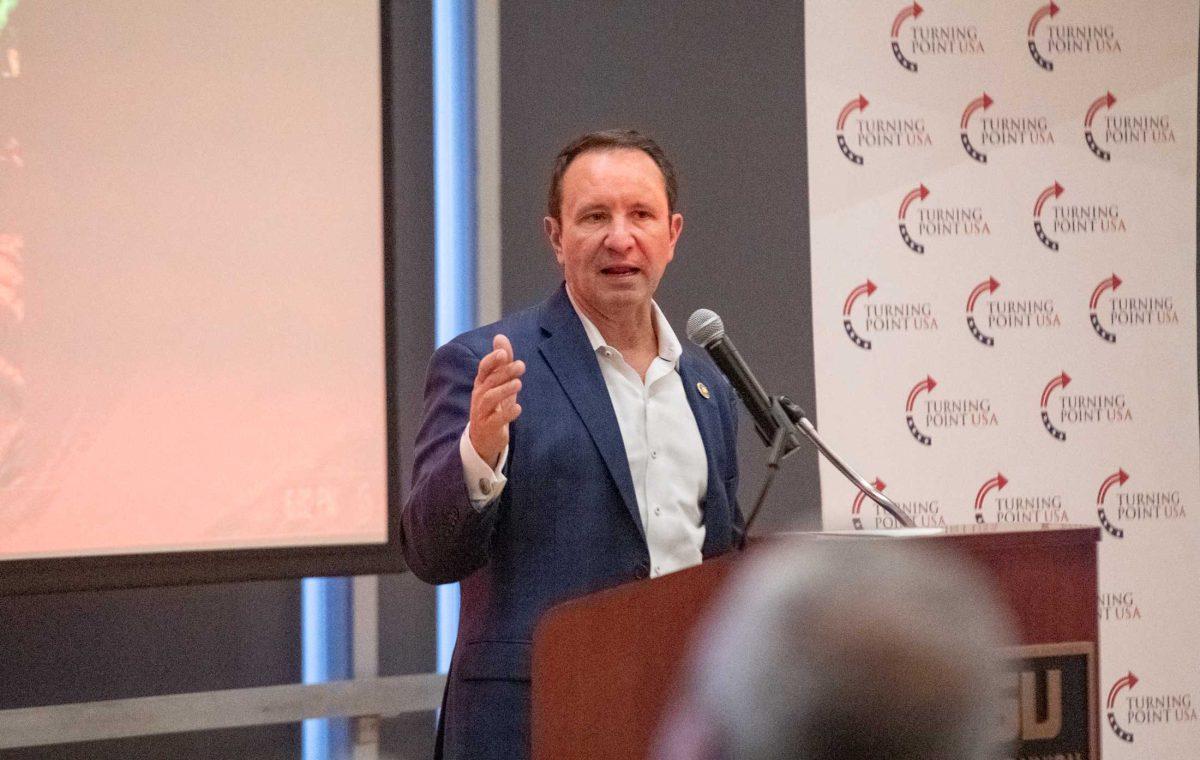One of the simplest but most profound observations by Edmund Burke, the founder of modern conservatism, is that history doesn’t stop: Society has never and will never be perfect, and things inevitably evolve with the passage of time.
The role of the conservative, then, isn’t to fight a losing battle, to resist change simply because change is bad. Instead, Burke argued, it’s the role of the conservative to preserve the good things – the true things – and especially institutions, which help protect the rule of law and are the factories of a nation’s social and cultural values.
An integral and necessary part of this preservation is an historically accurate understanding of these institutions. Possessing such knowledge, however, is difficult – especially in today’s United States, where hyper-partisanship makes understanding the most basic of facts laborious.
Take the American founding, for example. Since its creation, politicians, pundits and scholars have debated the intentions and purpose of the Constitution: Was it created to perpetuate slavery? To establish a Christian nation? To protect individual rights?
On Tuesday, at a Turning Point USA talk, Jeff Landry, Louisiana’s Attorney General and a Republican candidate for governor, brought his answer to LSU’s campus: It’s clear, Landry thinks, that the United States is Christian through and through – and that it needs to rediscover its religious foundations.
There’s been an improper switch, Landry argued, in our country’s source of truth and values. While under the Founders’ watchful eyes, it was God – “Big G.” But now, because of the machinations of an historically corrupt court system, it has devolved into the government – “Little g.”
According to Landry, the separation of church and state is a myth. The “wall of separation” between government and religion as articulated, for instance, in the Supreme Court’s 1947 Everson v. Board of Education decision, was never what the founding fathers meant when they penned the Bill of Rights.
For Landry, this is a convenient argument – one that plays well to his Trump-friendly, Protestant Evangelical base. (If God and Christianity are on Landry’s side, who could stand against him?)
While some of the Founding Fathers were practicing Christians, many of the most important names – Thomas Jefferson, John Adams, James Madison, Alexander Hamilton – weren’t. They were deists who believed in an impersonal, creating force of the universe that was wholly unconcerned with human affairs. Mankind was left to his own devices and was thus reliant on his reason, his own personal, rational faculties — a philosophical Jiminy Cricket — to lead him.
Jefferson, who is credited with writing the Declaration of Independence, turned to Enlightenment philosophy, rather than Christianity or the Bible, as the theoretical backbone for America’s first and most important documents.
Most specifically, Jefferson incorporated the 17th-century English philosopher John Locke in three important ways.
First was Locke’s emphasis on reason – which Locke said was “our only star and compass,” a most trusted guide. Second was Locke’s articulation of natural rights: that men were born with certain, inalienable rights upon which no government could rightly infringe. Third was the three most essential and basic of these rights – life, liberty and property – which Jefferson famously reformulated into life, liberty and the pursuit of happiness.
Interestingly, God is largely left out of Jefferson’s equation. Which doesn’t mean that there’s no room for conversations about God or the role of Christianity in the American founding (New England Puritans would have something to say about that), nor does it mean that individuals are required to abandon their beliefs when entering the public square. But it does indicate that making claims for an explicitly Christian Constitution or Bill of Rights is dubious at best.
This areligious interpretation of the American founding is corroborated by several scholars, perhaps most importantly Thomas West and his “The Political Theory of the American Founding,” where he argues that the founders indeed meant for the Constitution to be a Lockean natural rights document as opposed to one based on common law, natural law, Christianity or classical republicanism.
According to LSU political science professor James Stoner, this means that the intent of the American government is to protect people’s rights from tyranny and arbitrary rule. Noticeably, it’s not to perpetuate Christianity or any other faith. In fact, Christianity is only compatible in American government once it has been purged of anything contradictory to natural rights.
If West’s argument is accurate, Landry’s view of the Constitution, Bill of Rights and, by extension, its courts, simply can’t be true.
Landry’s talk did have many conservative elements: He recognized that the United States and its traditions are good true and worth fighting for; he rightly identified some of the excesses of the American left and the dangers they pose; and he emphasized the importance of personal responsibility.
But if Landry wants to fully embody traditional American conservatism (one might assume he would, given his claims to originalist readings of the Constitution and his legal credentials as attorney general), he needs to reevaluate his historical interpretations of American and its founders.
Otherwise, in the conservative view, Landry’s perspective is counterproductive and the antithesis of Burke’s description of the conservative vocation: to preserve a nation’s institutions in accordance with historical tradition. Landry’s current position is one that is only nominally conservative and in actuality seeks to arbitrarily change the most essential of American political facts.
If Landry doesn’t want to admit his true stance, however, and he truly does want to advocate for a redefinition of America along the lines of mainstream Trumpian, Protestant Evangelical lines (a curious thing to do for a Catholic), then fine. He’s entitled to that opinion. But he should at least be honest enough to come out and say it.
Benjamin Haines is a 24-year-old history graduate student from Shreveport.
Opinion: Attorney General Jeff Landry misinterprets the American founding
October 31, 2022
Attorney General of Louisiana Jeff Landry addresses the room on Tuesday, Oct. 25, 2022, in the Student Union in Baton Rouge, La.





